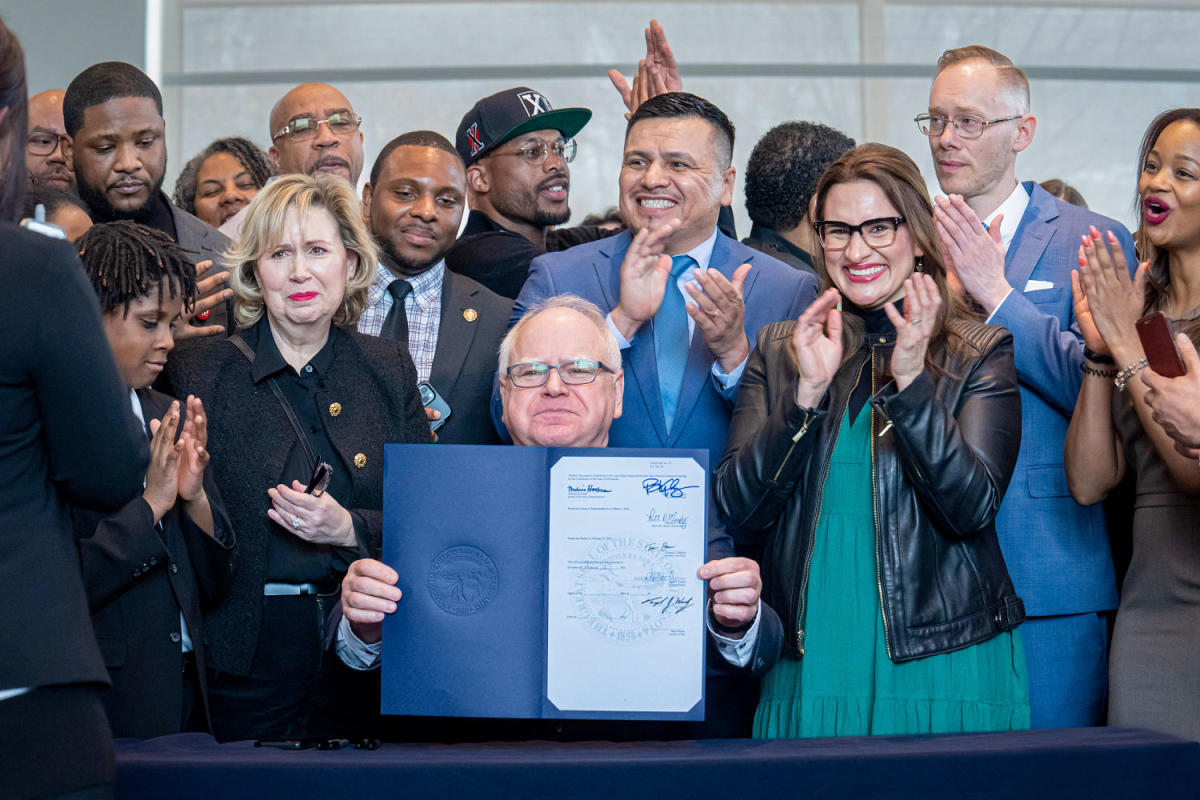
The Trump campaign — that is, the presidential campaign of Donald Trump, the Republican who was found guilty of felonies in one case and accused of them in three others — has attacked Tim Walz for supporting voting rights for people convicted of felonies. As it happens, the Minnesota Supreme Court just rejected a challenge to a law on the subject that was signed by Democratic presidential nominee Kamala Harris’ running mate.
The state’s top court on Wednesday did not rule on the merits of the Re-Enfranchisement Act, which took effect last year after Walz, the state’s Democratic governor, signed it into law. Instead, the state justices rejected the bid because it found no legal standing to bring the case. Individual taxpayers and the self-styled “election integrity” watchdog group to which they belong, the Minnesota Voters Alliance, argued that the new voting provision violated the state constitution and that it’s therefore illegal to use public funds to educate people about it.
But the state justices said the challengers had no legal right to bring the claim, citing so-called taxpayer and associational standing. “We share the district court’s concern that granting taxpayer standing in this case ‘would render the very concept of taxpayer standing meaningless’ because ‘practically every law entails at least some public expenditure,’” state chief justice Natalie Hudson wrote for the court.
“We can discern no principled limitation to the theory of taxpayer standing advanced by the Taxpayers that would prevent the concept of taxpayer standing from becoming meaningless by allowing parties to challenge substantive government acts that involve incidental expenditures,” Hudson continued, adding that taxpayers can’t “manufacture standing by pointing to expenditures that are incidental to implementing the law.” Because the taxpayers lacked standing, so too did their group, Hudson noted.
If the concept of standing sounds familiar, it was on those grounds that the Supreme Court rejected the challenge to mifepristone this past term, because the anti-abortion doctors and groups in that case lacked a sufficient legal stake to complain. Likewise here, the legal doctrine effectively blocked a court challenge to voting as it did to abortion in the mifepristone case. In that Supreme Court case, Justice Brett Kavanaugh’s unanimous opinion recalled the late Justice Antonin Scalia’s refrain that the standing analysis asks: “What’s it to you?” Or, as Walz himself put it in another context recently: “Mind your own damn business.”
Subscribe to the Deadline: Legal Newsletter for updates and expert analysis on the top legal stories. The newsletter will return to its regular weekly schedule when the Supreme Court’s next term kicks off in October.
This article was originally published on MSNBC.com
EMEA Tribune is not involved in this news article, it is taken from our partners and or from the News Agencies. Copyright and Credit go to the News Agencies, email news@emeatribune.com Follow our WhatsApp verified Channel





